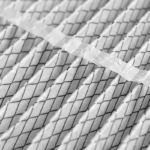blog
When to Change Your HVAC Air Filters


As an Inland Empire homeowner, it’s critical that you know when to change your HVAC system’s air filters. The operation, efficiency, and longevity of your heating and cooling system depend on it! Sanborn’s Air Conditioning & Heating shares why you need to make this task a priority and when to do it.
Why It’s Necessary to Change Your Filter
The air filters used inside forced air heating and cooling equipment aren’t meant to last indefinitely. The filter media traps contaminants as air cycles through the system – over time, the filter’s surface fills up with particles, leaving no more area for continued filtration. Once the filter has become completely clogged with contaminants, it cannot extract new particles, and they will be allowed to circulate through the heating and cooling equipment and back into your home.
What Happens If You Don’t Change Your Air Filters?
If you neglect to change your air filters regularly, you’re bound to encounter some pretty significant problems. These problems can also be costly to correct – much more so than the price of a new replacement filter!
Dirty HVAC Equipment
Since a dirty filter cannot trap airborne contaminants, these particles simply pass through the filter and into the indoor furnace or air handler. Once inside the unit, dust, dirt, and other particles fall out of suspension and settle on the components housed inside the furnace or air handler. When this happens, big problems can occur.
- Buildup can affect sensor readings, causing incorrect temperature readings and more.
- Dirt and dust can hamper the operation of components, forcing them to work harder and use more energy to do their jobs.
- A layer of grime on coils can hamper heat exchange, causing a lack of heating or cooling indoors.
Changing filters on a regular basis can protect your HVAC components from damage and keep them in service longer. A clean system is more energy efficient, so your heating and cooling costs won’t be as high.
Poor Airflow
Dirty filters are the leading cause of airflow issues in HVAC systems. Your HVAC system was designed to work optimally with a precise level of airflow – dirty filters prevent air from moving properly through the furnace or air handler. A dirty filter also forces the HVAC unit to use more energy as it attempts to push air through, resulting in wear and tear to components as well as overheating the system, which can cause additional damage. You’ll lower your energy bills when you change dirty air filters on a regular basis.
Poor Air Quality
While the main purpose of air filters is to protect the inner portions of HVAC equipment from contamination, a secondary benefit of their use is contaminant removal for better indoor air quality. However, dirty filters don’t remove contaminants – such as dust and allergens and pet dander – therefore indoor air quality suffers because the HVAC system has no way to lower the amount of circulating contaminants. This can be especially harmful for those who suffer from allergies or other respiratory illnesses.
How Often to Change Your Air Filter
Your air filter needs to be changed on a regular basis. The frequency depends on the type of filter, system use, and qualities of your household. Filters typically need to be replaced more frequently when heating and cooling systems run more often – change your air filter more often in the winter and summer versus the spring and fall. Homes that see higher levels of pollutants cause filters to fill up faster, so they will need to be changed more often than in a home without these qualities. If you have indoor pets, smoke indoors, have a large household, or use a lot of cleaning chemicals or air fresheners, your air filters won’t last as long as you may expect.
In general, it is recommended that you examine the filter once per month to determine if a change is necessary. Change the filter at the frequency recommended by the manufacturer or sooner if your examination shows the filter is clogged. Many homeowners think air filters need to be changed every three months (or every 90 days), but that’s not always the case.
- Low quality fiberglass furnace filters typically need to be changed every 30 days.
- Pleated air media filters last longer, but their lifespan varies based on thickness and MERV rating. You need to change these filters every 3 to 12 months.
- Washable filters typically require a cleaning every 30 days.
HVAC Care from Sanborn’s
Changing furnace filters on a regular basis is one of the easiest ways for homeowners to care for their home’s heating and cooling system. Work with Sanborn’s Air Conditioning & Heating to find the best filters for your equipment as well as indoor air quality products to further reduce indoor pollution. Contact us today to request an appointment.